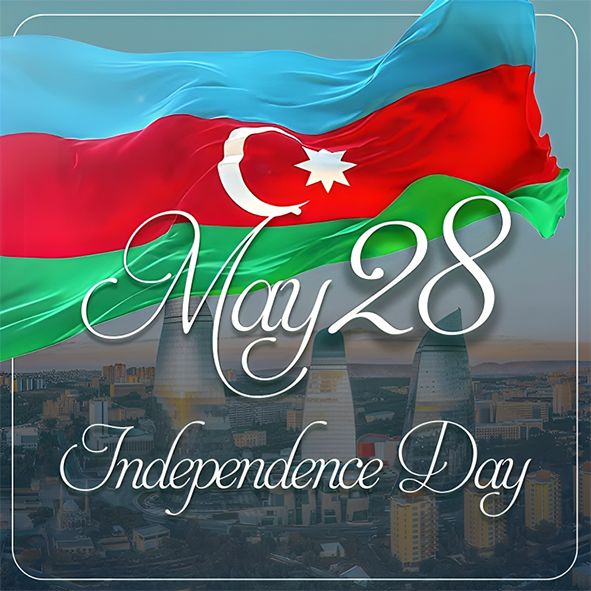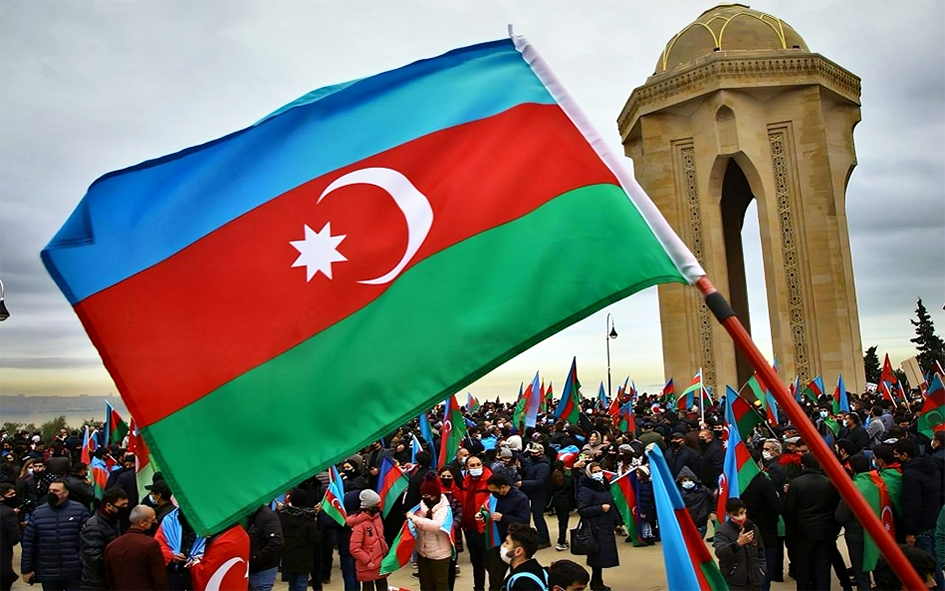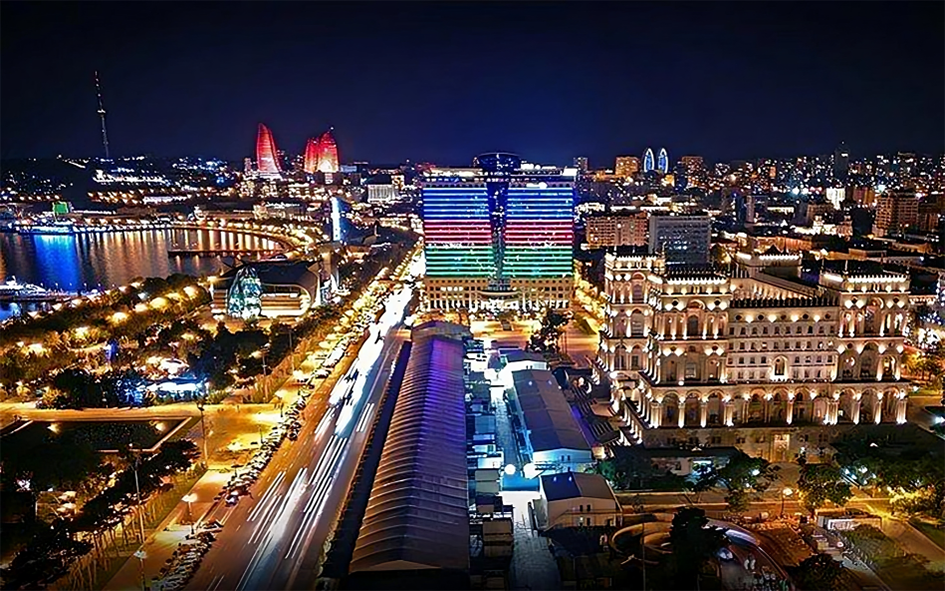Ramadan Evenings Reimagined.. A Refined Iftar Experience at Fairmont The Palm’s Fairuz Garden
28 May “Independence Day” Pride and Reflection moment for Azerbaijan

Dubai, UAE – May 27, 2025
Every year on May 28, the Republic of Azerbaijan celebrates a date that resonates far beyond a simple commemoration—it is a moment of deep national pride, historical reflection and collective identity. This day, known as Independence Day, marks the founding of the Azerbaijan Democratic Republic in 1918—the first secular and democratic republic in the Muslim East. 107 years since its foundation, this occassion stands as one of the most significant milestones in the country’s modern history and serves as a reminder of the Azerbaijani people’s unwavering pursuit of freedom and sovereignty.
The National Council of Azerbaijan proclaimed the independence of the Azerbaijan Democratic Republic on May 28, 1918, in Tiflis (modern-day Tbilisi), which led to establishment of a modern state based on democratic values, equal rights and progressive governance. What followed was a brief but groundbreaking chapter in the East: a parliamentary republic with a multi-party system, universal suffrage—including voting rights for women—and a government committed to civil liberties and nation-building. Though this republic lasted less than two years, due to the unfortunate circumstances of the period, it laid the philosophical and legal foundations of the independent Azerbaijan we know today.
After restoring its independence in 1991, Azerbaijan’s early years were marked by turbulence and chaos. Internally, the country was grappling with political instability, economic hardships and administrative inexperience. Externally, it was engaged in a devastating war over the Nagorno-Karabakh region, resulting in occupation of 20 % of its internationally recognized territories by Armenian forces and the displacement of nearly a million citizens.

It was during these fragile and dangerous times that national leader Heydar Aliyev returned to power in 1993 at the request of the people. His leadership became a turning point in the country’s fate. With a deep understanding of traditional statecraft and the demands of modern governance, Heydar Aliyev quickly moved to stabilize the political landscape, re-establish order, and build functioning state institutions. He introduced a new constitution, championed economic reforms and orchestrated a skillful diplomatic maneuver in positioning Azerbaijan as a neutral but assertive regional player. His signature achievement—the “Contract of the Century” signed in 1994 with major international oil companies—was a bold strategic move that secured Azerbaijan’s role as a key energy hub in the Caspian region. It helped transform the economy, created new jobs and generated the revenues necessary to support long-term development.
But perhaps Heydar Aliyev’s most lasting legacy was his doctrine of independent statehood: a strong, sovereign Azerbaijan built on unity, modernity, and international cooperation. These principles would guide the next phase of national development under his successor, President Ilham Aliyev, who took office in 2003 and has since become a central figure in shaping contemporary Azerbaijan.
President Ilham Aliyev’s leadership has been marked by strategic clarity, modernization and an emphasis on national pride and global visibility. Over the past two decades, Azerbaijan has probably become the most dynamic country in the region. Massive investments have been made in infrastructure, transportation, digital connectivity and urban development. From the transformation of the capital city Baku into a modern metropolis to the launch of smart village projects in rural areas, Azerbaijan has embraced a balanced model of growth that values both progress and sustainability.

At the same time, President Aliyev has overseen a robust foreign policy, one that positions Azerbaijan as a bridge between East and West, North and South. The country has hosted world-class events such as the 1st European Games (2015), 4th Islamic Solidarity Games (2017), Annual Global Baku Forum and lately the UN Climate Change Conference COP29 (2024), all of which have showcased its commitment to dialogue, diplomacy and global cooperation.
One of the most defining moments of President Aliyev’s tenure came in 2020, when Azerbaijan successfully carried out the Second Karabakh War (Patriotic War), regaining control over its occupied territories. The victory was not only military but symbolic—it restored Azerbaijan’s territorial integrity and brought renewed hope to families displaced for nearly three decades. Since then, the government has launched comprehensive reconstruction programs in the liberated regions, building new cities, roads, airports, mosques and laying the foundation for the return of former residents in safe, dignified conditions.
Today, Azerbaijan stands as a confident, independent nation with a young and dynamic population, a diversified economy and a growing presence on the international stage. Its relations with the United Arab Emirates is also a testament to this new chapter. Over recent years, ties between Baku and Abu Dhabi have strengthened across multiple sectors—from energy and logistics to technology and culture. Both nations share a forward-looking vision and a commitment to economic innovation, stability, and sustainable development. The Azerbaijani community in the UAE enjoys warm hospitality, while Emiratis visiting Azerbaijan discover a land rich in history, heritage, and hospitality. High-level exchanges and investment initiatives continue to deepen the strategic partnership between our two countries.

As Azerbaijan celebrates May 28, the day is more than a historical date—it is a living symbol of the nation’s resilience, the wisdom of its leaders and the aspirations of its people. It is a day to honor the sacrifices made, to remember the lessons of the past and to reaffirm the commitment to a stronger, more prosperous and more united Azerbaijan.
The story of Azerbaijan’s independence is still being written—and it is a story of hope, strength and unwavering determination.






